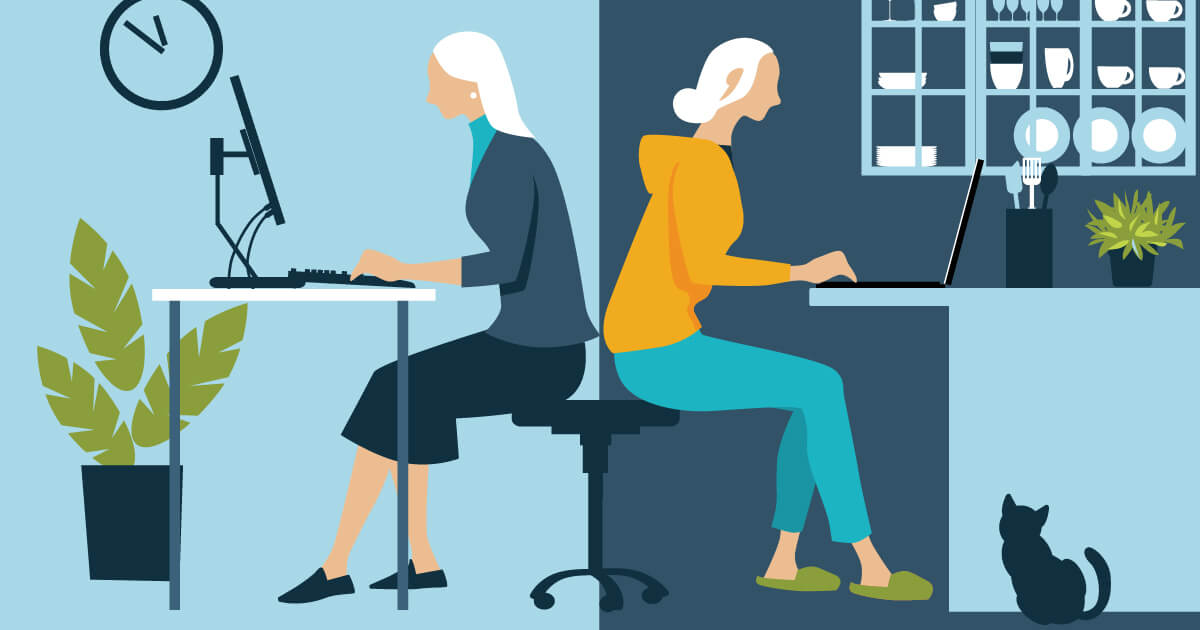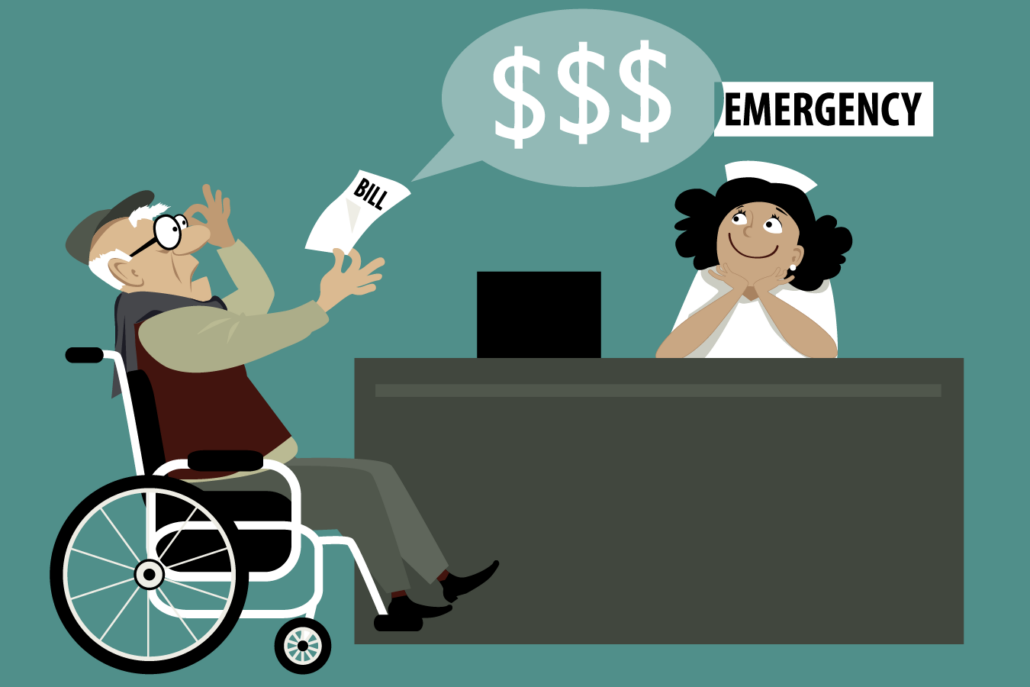Want a Health Boost? Listen to This Type of Music.
Posted by Alyssa Malmquist on August 31, 2022
If you’ve ever felt a surge of well-being while listening to classical music, you’re certainly not alone—and best of all, that doesn’t have to be a temporary feeling. Research indicates that this type of music offers plenty of long-term benefits when it comes to your health.
Improved heart health
Should Mozart and Strauss be part of your heart health strategy? That’s the conclusion of a German study that looked at the effects of classical music compared to other genres. A group of healthy participants listened to either pop music or classical music for just a few hours, and those in the latter group showed lower blood pressure and heart rate after listening.
Even those who already have heart issues could see an advantage. Another study looked at the effects of classical music on participants with heart failure and found that 30 minutes daily for three months resulted in better sleep, lower anxiety and depression, and higher quality of life.

Better pain control
There’s an effect called “music-induced analgesia,” which means that music can actually reduce pain in a way that’s similar to pain medication. For example, a study on patients with fibromyalgia—a condition that tends to come with considerable, chronic nerve pain—found that listening to music, including classical music, can reduce pain and even improve functional mobility.

That study noted that the mechanism is likely related to how music boosts dopamine, one of the hormones related to feelings of well-being. When this happens, your brain may reduce pain signals.
Another study reports that classical music may have an effect on acute pain as well. Researchers found that people recovering from surgery were able to be prescribed lower doses of pain relievers when they listened to this type of music, and even tended to have shorter hospital stays.
More mental clarity
With a more comprehensive amount of mental quiet, it’s much easier to concentrate and focus on tasks at hand, and classical music can be a boon for providing that type of ease.
For example, research published in the Journal of Music Therapy looking at the effects of music written by Mozart versus “new age” music found that both types inspired feelings of thankfulness and love, but participants in the classical music group had substantially higher levels of mental quiet, awe, and wonder.
This seems to be true even for kids. A study from the Institute of Education at the University of London assessed the effects of classical music on children aged 7 to 10 and found that after just six listening sessions, they showed higher levels of concentration and self-discipline.

Lower stress
How does classical music stack up against other relaxation techniques? Quite well. One study, published in the journal PLoS One, recruited 60 women and split them into three groups: one that listened to the classical Miserere by composer Gregoria Allegri, one that enjoyed the sound of rippling water, and the last with no sound at all, only rest.
The three groups differed significantly in terms of stress response. While the music group had more stress than the water group while listening, it showed much faster recovery than the other groups. Researchers concluded that because of this, music should be seen as an intervention tool for stress management and stress-related health issues.
That last item is particularly important, because stress has been shown to contribute to a range of health issues, including low back pain, cardiovascular disease, even some cancers. Lowering stress levels in a way that helps you bounce back quickly from stressors can potentially mitigate these risks.
What about other music?
If you’re not a fan of classical music, good news: Other types of music have also been shown to be beneficial to your mental and physical health, especially if it’s music that makes you feel a deeper sense of relaxation or joy.
For instance, researchers at the University of California, Berkeley looked at the reactions of over 2,500 people to thousands of song samples, and found that multiple types of music prompt emotions like amusement, cheerfulness, desire, dreaminess, and triumph. Although they can also evoke feelings of sadness or annoyance, it depends on what type of music you choose.
The lead researcher noted that music is a universal language, but that we don’t always pay enough attention to what it’s saying and how it’s being understood. Taking the time to incorporate more music into your life—classical or otherwise—could be an important step toward learning this language and supporting your health along the way.
To learn more about physical wellness, plus a fresh perspective on overall health and wellness, download Allways eBook.
6 Productivity Tips for Hybrid Employees

Hybrid work is a big departure from the traditional work arrangement. Switching between two workplaces may be a change, but it doesn’t need to cause your productivity to decline. Here are some tips to consider that may help boost your productivity as a hybrid employee.
Maximize Your Schedule.
Home and office environments are different. Plan tasks based on where you’ll be working. You may find tasks that require focus are best at home while collaborative tasks and meetings are better suited for the office. Different locations may spur creativity and focus in different ways.
Maintain a Consistent Schedule.
Your schedule at home should be consistent with your office schedule. Blocking your calendar each week can help you stay productive and maintain a healthy work-life balance.
Mirror Your Office Setup at Home.
Maintain the same organization at home that you use in the office. Keep your items in the same place on your desk. Consider which items are worth having at each location and which ones are worth shuttling between workplaces. This will save you time each day.
Leverage Technology.
Using technology, such as digital communication, project management tools and cloud-based platforms, can make it easier to jump into any project and stay productive from wherever you work.
Continue Communicating With Your Manager and Co-workers.
Hybrid work may cause you to miss out on key information or lose focus of your manager’s expectations. Using company communication channels and regularly checking in with your manager and peers can help you stay connected and updated on the most recent information and expectations.
Connect Regularly With Your Co-workers.
Feelings of social isolation can lead to a decline in your productivity. Find creative ways to have fun with co-workers even when working remotely, like playing games or virtual happy hours. This can re-energize you and counter feelings of burnout.
While no two work environments are the same, these tips are worth considering as you build a more permanent hybrid work routine that is effective and efficient. The hybrid work model is new and evolving. Communicate with your manager about what is working and what could be improved. Make adjustments when necessary, and when issues arise, keep trying.
5 Tools That Can Sharpen Your Memory
Posted by AllWays Health Partners Blog Team on April 07, 2022

No matter what age you are, exercising your brain in a focused and deliberate way can provide numerous benefits, from better attention to faster learning, and keeping your memory sharp is a major part of this.
Having good recall is important—you’d never find your car keys or remember birthdays without it—but memory skills can go deeper than everyday function. For instance, a study in the journal Memory found that people with good memory tend to have a stronger sense of purpose overall, and that contributes to better mental and physical health.
Considering the ripple effect that comes with improved memory, that means keeping your memory in shape is crucial. Ready for your brain workout? Consider these five tools as a starting point:
1. Language learning app
Even if it’s been decades since you sat in a classroom, learning another language—or you never had those classes at all—you can still give your brain a major boost by studying a second language.
According to research in Frontiers in Neuroscience, just a few months of a language program can lead to functional changes in the brain, especially among older people. There are plenty of language-learning apps that are easy to use and many offer a free trial, with options like Duolingo, Babbel, Pimsleur, and Rosetta Stone. Apps like these have both reading and listening comprehension, which fires up different parts of the brain.
2. Music player
From digging out your retro cassette player to asking your smart speaker to fire up your favorite playlist, it doesn’t matter you get music delivered, it’s the tunes that provide benefits. Even better? Make sure the music is upbeat.
According to a study in the journal PLOS ONE, listening to music you describe as “happy” can prompt creativity, problem solving, and a positive mood, which all contribute to better memory function. For some people, even having music on in the background can help with memory capacity, especially if you’re listening while learning new information.
3. Jigsaw puzzles
Whether it’s a 1,000-piece puzzle that takes over your dining room table or a simple 100-piece version you can snap together in an hour, jigsaw puzzles have been shown to use multiple types of cognitive function and can even protect your brain as you get older.
Not only are you challenging your memory and concentration, but doing a puzzle can also help reduce stress, according to commentary from Baylor University. That’s particularly true if you make it a social activity, another way to give your brain a break from being busy and overwhelmed.
4. Light dumbbells
Could a pair of 5-pound or 10-pound dumbbells really help your memory? There’s plenty of research that suggests strength training is a big-time brain booster. Although cardio exercise shows benefits as well, lifting weights seems especially protective for memory.
For example, a study published in the journal Acta Psychologica found that even one session of strength exercises can improve memory performance, even after short-term stress—which tends to reduce memory function. Regular training is even better: Research from The University of Sydney in Australia showed that lifting weights can slow and even halt age-related brain changes, especially the parts of the brain vulnerable to Alzheimer’s disease.
5. Mindfulness and sleep app
The connection between quality sleep and optimal memory function is well established. In fact, sleep affects all of your brain functions, including mood, judgment, perception, and learning. Research from Harvard University notes that sleep is when your memories get organized and stored, so skimping on your shuteye can have serious effects on both short-term and long-term memory.
If you struggle with sleep, consider trying an app that focuses on mindfulness, relaxation, and deep breathing exercises, such as Headspace, Calm, Smiling Mind, and 10% Happier.
No matter what tools you choose, one of the most important aspects of boosting memory function is consistency. Just like building your muscles through strength training, keeping your memory in shape is best done by getting into a regular habit that becomes part of your everyday mix.
Surprise Billing: Know Your Benefits
|
|
What Happens If I Miss Open Enrollment?

An open enrollment period is a short period of time when you can enroll in or make changes to your employee benefits elections. Possible changes include adding or dropping coverage, adding or removing dependents, or enrolling in benefits for the first time.
Open enrollment is your opportunity to take advantage of important benefits, such as health, vision, dental and life insurance, a health savings account (HSA), and a retirement plan.
The decisions you make during the open enrollment period can have a significant impact on your life and your finances, so it is important to weigh your options carefully and to make your decisions during the open enrollment period.
Failure to comply with your employer’s open enrollment deadline could result in a loss of coverage for you and your loved ones. Missing this deadline also means that you could be unable to make changes or enroll in benefits until the next open enrollment period.
One exception to this rule is if you experience a life-changing qualifying event that would trigger a special enrollment period (SEP). Events such as getting married or divorced, having or adopting children, or losing eligibility for other health coverage can trigger special enrollment rights. In some cases, you can also qualify for special enrollment if you become eligible for a premium assistance subsidy under Medicaid or a state Children’s Health Insurance Program (CHIP).
If you think you might qualify for a SEP, contact your HR manager. If you have not recently experienced a life event, but have missed the open enrollment deadline, you should also contact your HR manager to find out whether you have any other options.
Options for Obtaining Health Coverage
If you miss your employer’s open enrollment deadline, there are a number of ways in which you can try to obtain health insurance; however, the availability of some options will depend on their enrollment deadlines.
- Spousal Benefits—If your spouse receives benefits from his or her employer and the open enrollment period is still open (or coming up), you may be able to enroll in coverage through your spouse’s plan.
- Young Adult Benefits Under a Parent’s Plan—If you are younger than 26 years old, you may be able to be added as a dependent on your parent’s plan. If your parent’s plan offers dependent coverage, this option should be available to all children under 26, regardless of whether or not you are employed, married, have children or are a student. However, this option is likely available only if your parent’s work-based plan offers coverage for family members and if the open enrollment period for that plan has not yet closed.
- State Insurance Marketplace—Depending on the timing, you can consider buying health insurance from the Health Insurance Exchange Marketplace. Marketplace coverage is only available for purchase during an annual open enrollment period, unless you qualify for a SEP. (See the SEP section of www.healthcare.gov to check). Similar to employer-based plans, a SEP can be triggered if you experience a qualifying life event.
Regulations Issued to Implement Ban on Surprise Billing
On July 1, 2021, the Departments of Labor (DOL), Health and Human Services (HHS) and the Treasury (Departments) jointly released interim final rules outlining certain requirements related to surprise billing. These rules implement certain provisions of the No Surprises Act, which is a ban on surprise medical bills effective in 2022 that was enacted as part of the Consolidated Appropriations Act, 2021, signed into law in late 2020.
Treasury (Departments) jointly released interim final rules outlining certain requirements related to surprise billing. These rules implement certain provisions of the No Surprises Act, which is a ban on surprise medical bills effective in 2022 that was enacted as part of the Consolidated Appropriations Act, 2021, signed into law in late 2020.
Surprise Medical Bills
Surprise medical bills occur when patients unexpectedly receive care from out-of-network health care providers. For example, a patient may go to an in-network hospital for treatment, such as surgery or emergency care, but an out-of-network doctor may be involved in the patient’s care. Patients often cannot determine the network status of these providers during treatment in order to avoid the additional charges. In many cases, the patient is not involved in the choice of provider at all.
Overview of the Interim Final Rules
These interim final rules protect participants, beneficiaries and enrollees in group health plans and group and individual health insurance coverage from surprise medical bills when they receive emergency services, non-emergency services from nonparticipating providers at participating facilities, and air ambulance services from nonparticipating providers of air ambulance services, under certain circumstances. Under these provisions, providers will have to work with the group health plan or health insurance issuer to determine the appropriate amount to be paid by the plan or issuer. Hospitals and healthcare facilities could turn towards outsourcing their medical billing processes to firms such as Gryphon Healthcare to ensure compliance to these new regulations, as external agencies can often focus solely on the billing processes thereby eliminating any human errors or inaccurate billing.
The interim final rules generally apply to group health plans and health insurance issuers offering group or individual health insurance coverage. However, certain provisions apply to emergency departments, health care providers and facilities, and providers of air ambulance services related to the protections against surprise billing.
Allergies: Seasonal Relief
Days are growing longer, warmer weather is creeping in and as the seasons change, so will your allergy symptoms. You can combat your allergic reactions with these seasonal tips.
Spring
Mold growth blooms indoors and outdoors with spring rains. As flowers, trees, weeds and grasses begin to blossom, allergies will follow. Spring-cleaning activities can stir up dust mites, so be sure to:
- Wash your bedding every week in hot water to help keep pollen under control.
- Wash your hair before going to bed, since pollen can accumulate in your hair.
- Wear an inexpensive painter’s mask and gloves when cleaning, vacuuming or painting to limit dust and chemical inhalation and skin exposure
- Vacuum twice a week.
- Limit the number of throw rugs in your home to reduce dust and mold.
- Make sure the rugs you do have are washable.
- Change air conditioning and heating air filters often.
Summer
Warm temperatures and high humidity can put a strain on seasonal allergy and asthma sufferers. Summer is the peak time for some types of pollen, smog and even mold:
- Stay indoors between 5 a.m. and 10 a.m., when outdoor pollen counts tend to be highest.
- Be careful when going from extreme outdoor heat to air conditioning. The temperature change can trigger an asthma attack.
- Wear a mask when you mow the lawn or when around freshly cut grass. Afterward, take a shower, wash your hair and change clothes.
- Dry laundry inside instead of on an outside clothesline. Check your yard for allergens, as well as other irritants such as oak, birch, cedar and cottonwood trees; weeds such as nettle or ragweed can also trigger allergies.
- Wear shoes, long pants and long sleeves if allergic to bee stings.
- Do not wear scented deodorants, hair products or perfumes when outdoors.
If you are unsure your symptoms are allergy related or your symptoms are getting worse please consult a doctor.
Taking Care of Your Mental Health

Your mental well-being includes how you think, act and feel. It also helps you cope with stress, relate to others and make decisions. Mental well-being includes mental health, but goes far beyond treating mental illness. For example, you could go through a period of poor mental health but not necessarily have a diagnosable mental illness. And your mental health can change over time, depending on factors such as your workload, stress, and work-life balance. Therefore, it might be essential to visit your nearest direct primary care facility and consult with a physician about your current mental state. This can help the doctor to diagnose your condition better.
Mental illness refers to a variety of conditions that affect your mood or behavior, feelings or thinking. Mental illnesses can occur occasionally, while others are chronic and long-lasting. Common mental illnesses include anxiety, depression, schizophrenia and bipolar disorder. 1 in 5 U.S. adults will experience a mental illness in any given year, and more than 50% will experience mental illness at some point in their life.
Mental health is extremely important and doesn’t just affect the mind but can also have effects on your physical well-being, causing weight gain, heart attack, or stroke. Because it’s such a crucial component of your health, it’s important to focus on maintaining or improving your mental health. While it’s not always easy, there are ways to help improve your mental health. Some people may take the assistance of a professional through online therapy in New York City or elsewhere, and some may adopt a few self-care measures to deal with mental health issues. It is essential to take every possible course of action to support the mental wellness of yourself and your family. While some might go down the medicinal or supplement (from https://mykratomclub.com and the likes) path, others could follow meditation and yoga to help with their mental health problems. Here are three simple ways to do so every day:
- Express gratitude. Taking five minutes a day to write down the things that you are grateful for has been proven to lower stress levels and can help you change your mindset from negative to positive.
- Seek help. . If you suffering from the symptoms of mental illness, be it anxiety or irritability at the slightest inconvenience, then it would be a good idea to seek the help of experts. Talking to a therapist and opting for counselling sessions could be of immense help. However, for that, you might need to look for platforms developed by BetterHelp (you can get a 15% discount upon availing of their services), where patients can meet the most experienced therapists.
- Get exercise. You probably hear all the time how beneficial exercise is to your overall health, but it’s true. Exercising can improve brain function, reduce anxiety and improve your self-image.
- Get a good night’s sleep. Strive for seven to eight hours of sleep a night to improve your mental health.
National Suicide Prevention Lifeline at 800-273-8255
website: https://suicidepreventionlifeline.org
5 Summer Wellness Tips
 Summer is an exciting time of the year that is typically filled with cookouts, outdoor activities, and other events. To promote a happy, healthy summer, try following these five wellness tips:
Summer is an exciting time of the year that is typically filled with cookouts, outdoor activities, and other events. To promote a happy, healthy summer, try following these five wellness tips:
- Drink plenty of water. Dehydration in the summer months can make you more susceptible to heat exhaustion and heatstroke. To avoid symptoms of dehydration such as dizziness, weakness, and fatigue, try to drink at least eight to ten glasses of water throughout the day.
- Watch what you eat at summer cookouts. Common cookout foods like burgers and hot dogs are full of fats that can make you feel lethargic. Sticking to lighter more refreshing foods like fish, pasta salads and watermelon can give you more energy while still satisfying your appetite.
- Protect yourself from the sun. Protect yourself from the harmfulness of UV rays by wearing protective clothing, staying in shaded areas during the sun’s highest points (from 10 a.m. to 4 p.m.) and using a sunscreen with an SPF of at least 15. It may also be a good idea to install an air conditioner (get in touch with professionals from brookshvac.com/ac-installation/) so that you don’t have to worry about sweating at all times.
- Exercise safely outside. Exerting high amounts of energy in the heat raises your body temperature, making you more at risk for heat exhaustion and stroke. Make sure to drink lots of water, wear breathable clothing and have healthy snacks to fuel your body.
- Take a vacation to prevent burnout. Reduced productivity, exhaustion and decreased engagement are all symptoms of burnout. Taking time away from your work responsibilities to get your mind and body in check is essential to keep up work performance and overall health.

